The WEF Wants Your House to Be Worth ZERO, to Achieve "Net Zero" Carbon
Most Homes and Buildings will Become "Stranded Assets"
Does your residence look like one of these homes?
Was your home (single family or multifamily) NOT built to the WEF’s 10 Green Building Principles published in 2021? Does your house NOT look like a “net zero structure of the future,” as shown below:
If so, be aware that the WEF thinks your house or commercial building is overpriced due to an imagined “carbon bubble” and should be worth ZERO. If the WEF gets its way, your building could become a “stranded asset” — that is, abandoned due to changes in regulations — unless you perform an expensive and often impossible retrofit — at your expense, of course!
“Carbon Bubble” and Real Estate Prices
An important agenda article referring to WEF-endorsed “pricing risk management guidelines” and “green building principles” explains:
The ULI warns of a possible ‘carbon bubble’ where the continued lack of pricing this transition risk keeps asset values artificially high and further perpetuates the chance that they ultimately become too costly to retrofit, resulting in widespread stranding of assets.
If you are not used to reading business mumbo-jumbo, I can explain, as I have a Master’s degree in business administration.
The WEF is warning us: homes and commercial buildings may be worth ZERO because the future retrofits required for net-zero carbon emissions may cost more than their value. Thus, your home or commercial real estate may become stranded. The term stranded asset means that is unusable in its current form due to a change in regulations.
“Widespread stranding of assets” is a business language talk of many buildings being abandoned.
Lest you think that I am picking on just one paragraph in a random WEF article, let me show you quotes from four separate WEF, CRREM, UNEP, and ULI documents that say the same thing:
(1) Decarbonizing real estate: How to price the net zero transition to avoid a 'carbon bubble'
(2) ULI Transition Risk Assessment - Guidelines for Consultation
This is who they are:
They are warning us about large parts of cities becoming uninhabitable due to Net Zero policies making buildings stranded:
(3) Teaming up to decarbonize real estate: This is how cities can achieve net-zero via coercion
(4) Managing Transition Risk in Real Estate: Aligning to the Paris Climate Accord – CRREM & UNEP FI Report
Shows an example of how ALL existing assets (buildings) could become stranded by 2050:
So you can see that the WEF and its partners are quite serious about most assets becoming “stranded” — or abandoned due to the cost of retrofit — in the future.
Grenfell Tower Fire
The UK is at the forefront of requiring existing residential real estate owners to retrofit their buildings towards Net Zero. For example, many buildings were recently clad with special “climate cladding” to reduce heat losses. Sadly, one of those buildings, the infamous Grenfell Tower, caught fire inside the cladding.
The building burned within minutes, claiming numerous victims who could not evacuate.
Why You May Not be Able to Retrofit Your Home
Look at the features of a “Net-zero house of the future.” Compare it to your home.
Installing corn-based carpets and repainting the inside with soy-based paint is the easy part. Some ideas are crazy, like watering your garden with water coming out of showers and washing machines. Switching to heat pumps and geothermal heating or cladding your home with custom panels for greater insulation will likely cost more than the value of your house — necessitating a demolition or abandonment of your home.
Installing a wind turbine on your roof is a “cherry on top.” Just think of all the noise from the turbine transmitted to your home and your roof eventually collapsing under the weight of
Solar electrical panels
Solar heating panels
Roof-mounted wind turbine weight, torque, and vibration
How Stranding Will Happen
If you think your home or commercial building will never be stranded, think again. It can happen very easily and might seem natural and not pre-planned.
The supply of hydrocarbon fuels worldwide may become restricted due to seemingly incidental geopolitical problems and restrictions on oil exploration financing and windfall tax, which would prevent the replenishment of the internal capital of oil and gas companies. Prices for hydrocarbons may rise dramatically.
Additional carbon taxes may be imposed on top of already high prices for natural gas, heating oil, and electricity.
If you, like most people, live on a limited income, the cost of heating and cooling your home and paying non-compliance fines may exceed your financial abilities.
Your climate-conscious bank may refuse to refinance your home or commercial building if it is not Net-Zero compliant.
Selling your building may prove problematic because buyers may be unable to find bank financing and would not want to pay exorbitant utility costs and fines.
Single-family homes, especially, require much more energy per inhabitant than multifamily housing and are much more expensive to retrofit. They are an obstacle to solving climate change.
If the above does happen, which is entirely possible, your ability to occupy your building will end, and you will need to move. Where would you move to? Who knows! Perhaps, at this point, you will consider the Green City of the Future.
None of the Above Mentioned Actors Were Elected
Thank you for reading my story about how important actors on the world scene may make your home or apartment complex obsolete and “stranded.” While I hope that my concerns will prove unfounded, they possibly will play out.
If so, be aware that none of those abovementioned players — the WEF, ULI, CRREM Global, UN, etc. — was elected. Your vote, and voice, do not influence the outcome.
Be aware that such developments are welcomed by some people championing climate change and are feared by others, some of whom may be reading this article. But even climate change champions may see their own dwellings eventually becoming “stranded.”
Which group do you belong to? Will you mount a wind turbine on your roof or move to the smart city of the future?



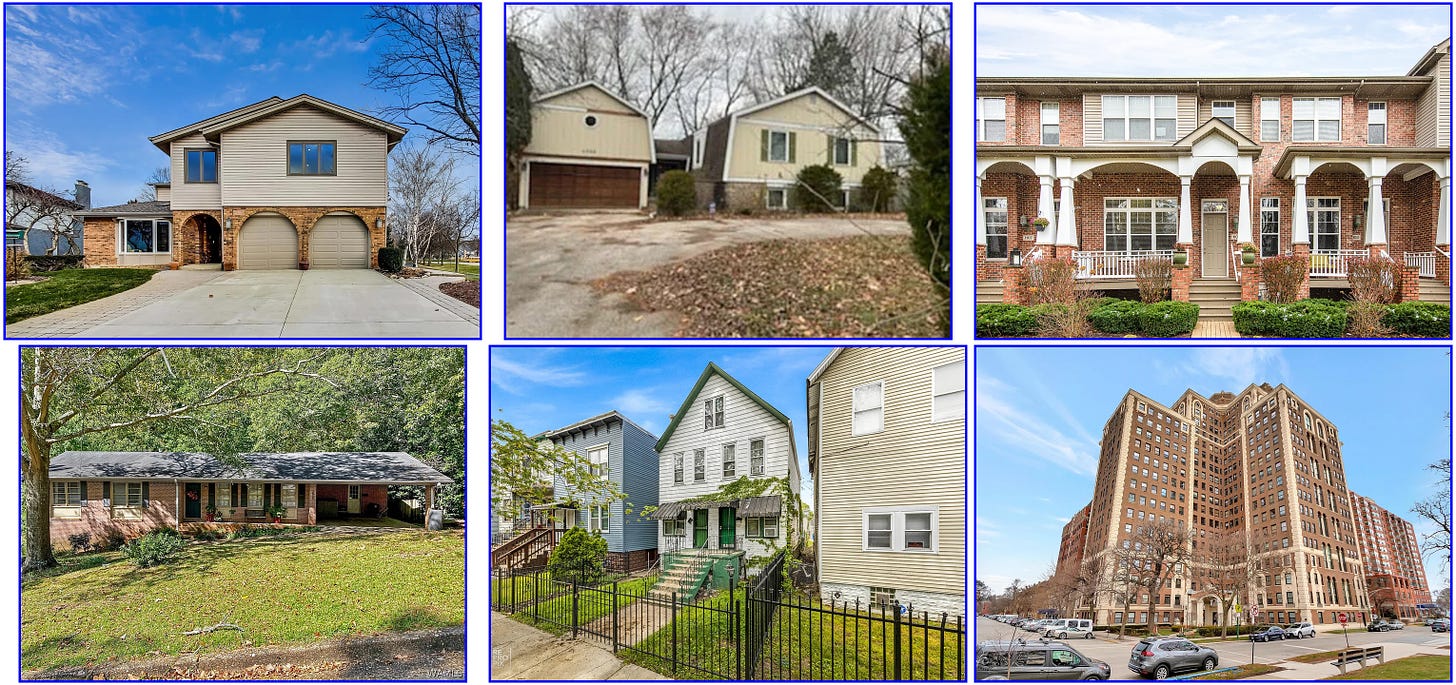

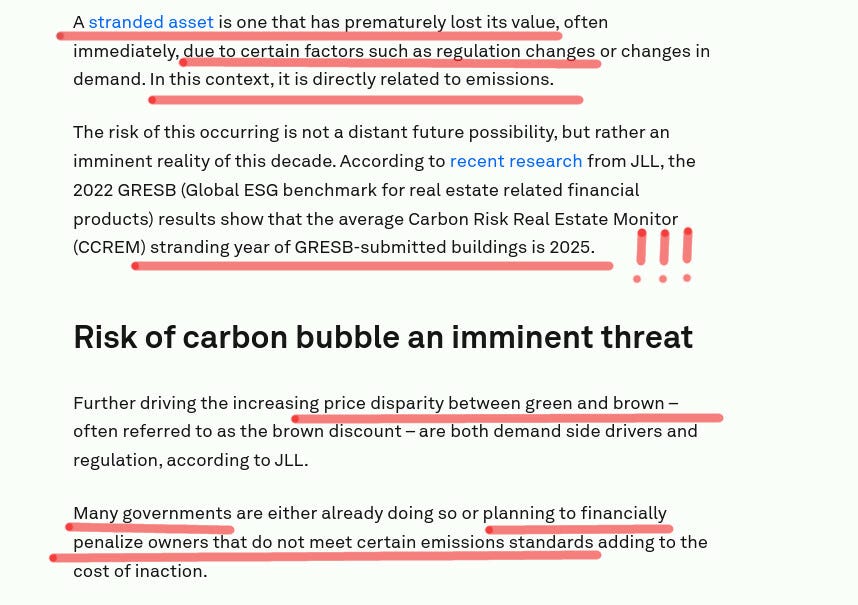


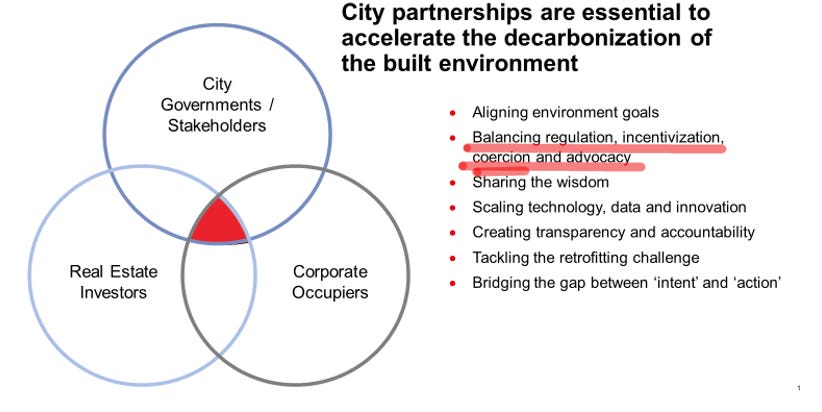


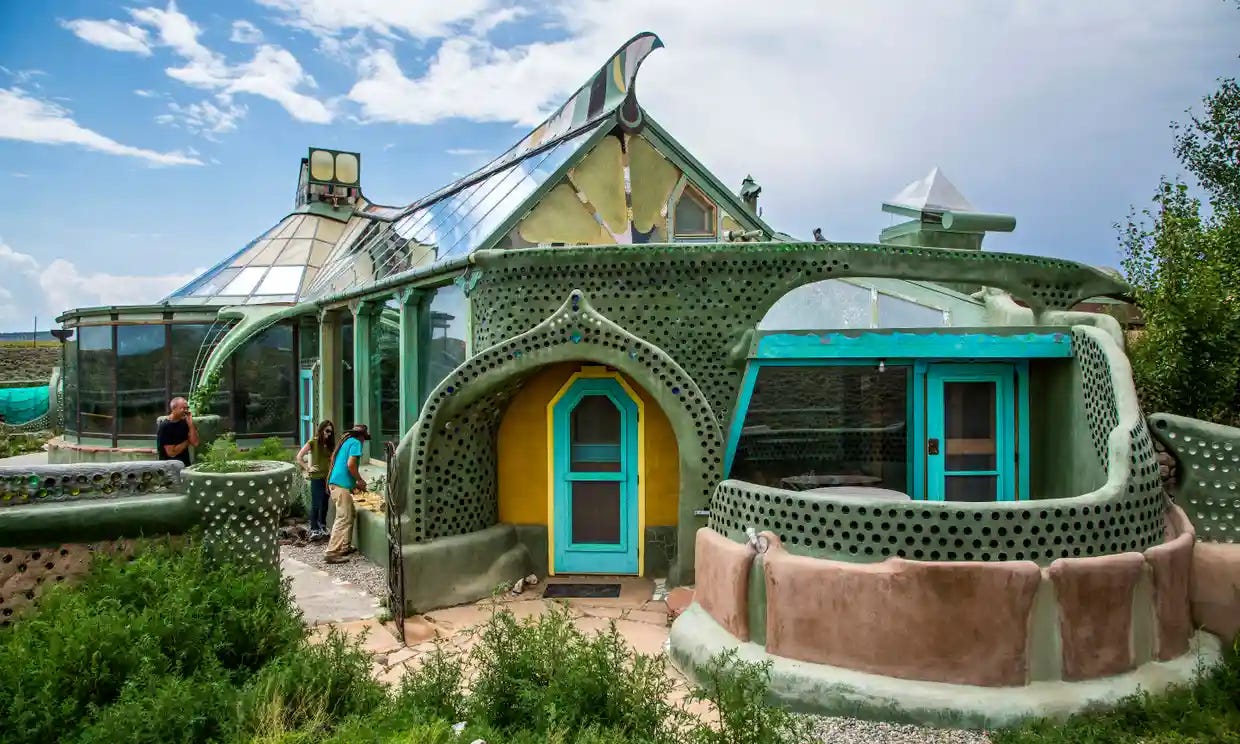

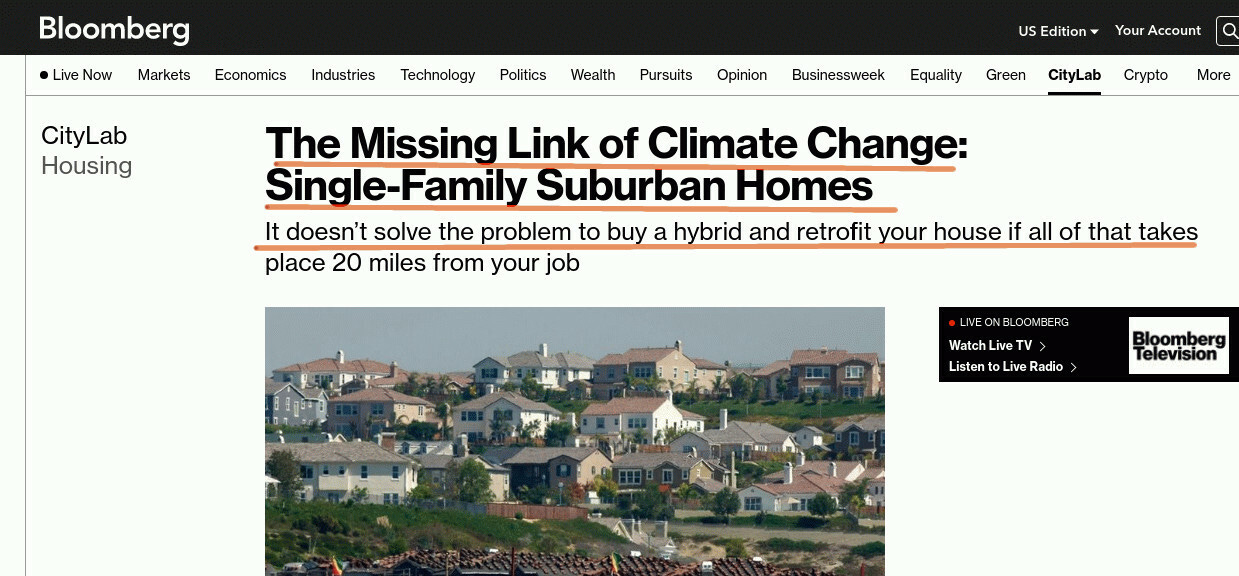

Let's look at all of those "green" features:
veggie based insulation: Maybe a good idea for new home, but an old home with good, already manufactures insulation is just fine. Retrofitting would consume more energy and release more carbon.
High performance windows: perhaps a good investment both financially and carbon wise if windows are old and leaky.
Demand response appliances - big brother again.
Solar thermal heating system - not viable in many cold, cloudy or snowy climates as well as where there are lots of trees. Won't make a meaningful difference in a large multifamily building because of the small roof to volume ratio in multifloor buildings.
Grey water recovery - perhaps a good idea if easy to do, but it's a lot more complicated than they make it out to be. Poop needs to be thoroughly composted unmixed with flush water. Washing machine water will be full of detergent and plastic fibers. not in my garden!
Heat pumps and geothermal - much more complex than advertised. Not viable everywhere.
Solar panels - sure, on well exposed roofs and reasonably sunny climates, but what a net source of carbon on some of the poorly exposed rooftops I've seen!
Wind power system - come on! 90%+ of locations are very poor locations for a small turbine and the net carbon footprint will surely be positive.
low flow fixtures - sure, but they better rinse shampoo out of thick hair in a reasonable amount of time!
Home energy manager - Feels like big brother to me.
Energy efficient lighting - as long as the impact of the light spectrum delivered, flicker and EMFs don't harm health.
Once I see Klaus and his minions living in a thatch house I’ll consider it. Until then he can buzz off.